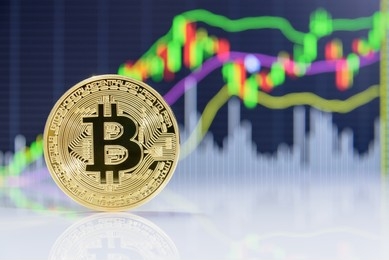The decentralization dilemma: Sacrifices to be made on the way to freedom


Decentralization is a hot topic in digital assets, often seen as a key to the future of crypto. Everyone’s talking about it like it’s a magical solution, but let’s get real—it’s as tricky as chasing a pot of gold at the end of a rainbow.
Unpacking the Decentralization Dream
Decentralization takes cues from the tech world, where it’s all about setting up efficient networks. But now, we’re applying this to money matters. Take Ethereum, for example. Joseph Lubin, one of the brains behind it, didn’t just want to create a new type of money. He wanted to change how we trust financial markets. He says Ethereum is all about cutting out the middleman as it grows up.
This whole idea is to kick to the curb the usual suspects—banks, exchanges—you name it, and let a big group handle things like making decisions and keeping records. This group isn’t controlled by anyone and operates on open-source networks. This setup means they shouldn’t need to trust each other too much because there’s less juice in trying to game the system.
But here’s the kicker: when big fails like FTX and Mt Gox go down, it’s a slap-in-the-face reminder of what happens when you put all your eggs in one basket. These are the kind of messes crypto wants to clean up.
Now, if decentralization means one side gets more power, it’s a safe bet someone else is losing out. This trade-off got the Securities and Exchange Commission all up in arms last week. They’re eyeing Lubin’s group, Consensys, maybe hitting them with an action because they think the Metamask wallet smells like a broker-dealer, which Lubin finds downright laughable.
Lubin’s take? The U.S. government loves playing big boss with banks worldwide. But he’s all about dodging these middlemen, giving folks direct control over their assets, and sparking all sorts of financial and tech innovations. Meanwhile, the SEC is probably sweating over the potential flood of capital and innovation heading toward Lubin’s ecosystem, worried it’ll turn the whole scene on its head.
The Reality Check on Decentralization
Dive deeper, and you hit a wall of reality. Decentralization isn’t just a tech play; it’s a major governance headache. Candace Kelly from the Stellar Development Foundation breaks it down: a decentralized world has layers, lots of them, with different players managing different bits from ensuring protocols work to handling the wallets where your digital bucks live.
Kelly compares it to the internet—no one owns it, and that’s cool. It’s all about the power of open, public networks that are constantly looked after, unlike those stuffy private networks where some bigwig still calls the shots.
Yuval Rooz from Digital Asset throws in another curveball. Regulators would freak if JPMorgan threw open its doors and let the whole internet peek at their client’s info. He thinks the future’s about public infrastructure that everyone can tap into, but where creators still get to play by the rules and decide what they’re putting out there.
This blend of openness and regulation is starting to look a lot like those global financial markets trading in bonds or swaps, where deals aren’t hammered out on public exchanges but are still tied up with regulatory strings. These markets have been around forever without needing blockchain tech.
Here’s the takeaway:- Crypto is going through growing pains, learning stuff the hard finance world already knows by heart. You can’t slap a “decentralized” label on everything. It’s tougher to spread governance than technology. And while dropping something on a blockchain is cool and all, it doesn’t magically make it decentralized. Just like the internet shows us, you can have decentralized services without needing a blockchain at all.
So, what’s the endgame? Decentralization is more of a balancing act than a finish line. Some things will lean towards centralization, others won’t. But what’s clear is getting there is about making smart choices, not just chasing dreams.
The decentralization dilemma: Sacrifices to be made on the way to freedom


Decentralization is a hot topic in digital assets, often seen as a key to the future of crypto. Everyone’s talking about it like it’s a magical solution, but let’s get real—it’s as tricky as chasing a pot of gold at the end of a rainbow.
Unpacking the Decentralization Dream
Decentralization takes cues from the tech world, where it’s all about setting up efficient networks. But now, we’re applying this to money matters. Take Ethereum, for example. Joseph Lubin, one of the brains behind it, didn’t just want to create a new type of money. He wanted to change how we trust financial markets. He says Ethereum is all about cutting out the middleman as it grows up.
This whole idea is to kick to the curb the usual suspects—banks, exchanges—you name it, and let a big group handle things like making decisions and keeping records. This group isn’t controlled by anyone and operates on open-source networks. This setup means they shouldn’t need to trust each other too much because there’s less juice in trying to game the system.
But here’s the kicker: when big fails like FTX and Mt Gox go down, it’s a slap-in-the-face reminder of what happens when you put all your eggs in one basket. These are the kind of messes crypto wants to clean up.
Now, if decentralization means one side gets more power, it’s a safe bet someone else is losing out. This trade-off got the Securities and Exchange Commission all up in arms last week. They’re eyeing Lubin’s group, Consensys, maybe hitting them with an action because they think the Metamask wallet smells like a broker-dealer, which Lubin finds downright laughable.
Lubin’s take? The U.S. government loves playing big boss with banks worldwide. But he’s all about dodging these middlemen, giving folks direct control over their assets, and sparking all sorts of financial and tech innovations. Meanwhile, the SEC is probably sweating over the potential flood of capital and innovation heading toward Lubin’s ecosystem, worried it’ll turn the whole scene on its head.
The Reality Check on Decentralization
Dive deeper, and you hit a wall of reality. Decentralization isn’t just a tech play; it’s a major governance headache. Candace Kelly from the Stellar Development Foundation breaks it down: a decentralized world has layers, lots of them, with different players managing different bits from ensuring protocols work to handling the wallets where your digital bucks live.
Kelly compares it to the internet—no one owns it, and that’s cool. It’s all about the power of open, public networks that are constantly looked after, unlike those stuffy private networks where some bigwig still calls the shots.
Yuval Rooz from Digital Asset throws in another curveball. Regulators would freak if JPMorgan threw open its doors and let the whole internet peek at their client’s info. He thinks the future’s about public infrastructure that everyone can tap into, but where creators still get to play by the rules and decide what they’re putting out there.
This blend of openness and regulation is starting to look a lot like those global financial markets trading in bonds or swaps, where deals aren’t hammered out on public exchanges but are still tied up with regulatory strings. These markets have been around forever without needing blockchain tech.
Here’s the takeaway:- Crypto is going through growing pains, learning stuff the hard finance world already knows by heart. You can’t slap a “decentralized” label on everything. It’s tougher to spread governance than technology. And while dropping something on a blockchain is cool and all, it doesn’t magically make it decentralized. Just like the internet shows us, you can have decentralized services without needing a blockchain at all.
So, what’s the endgame? Decentralization is more of a balancing act than a finish line. Some things will lean towards centralization, others won’t. But what’s clear is getting there is about making smart choices, not just chasing dreams.

